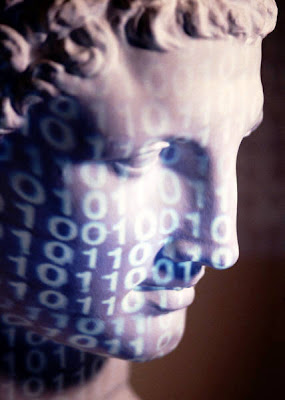Wars, Genocides, Natural Disasters, Pain and Sorrow, are all Part of the Human Condition as the Creator Intented
The largest Armenian church in Turkey today is St. Giragos which is also a cultural center since succeeding Armenian generations in Turkey have converted to Islam, either forced or in order to blend it and survive. This is by itself a lesson on the spread of religion.
A conservative (religious, social) would point out that humans are governed by "original sin," which basically means that humans have a bad quality in them--the "bad seed" can be seen religiously or symbolically. Therefore, the individual shouldn't have unlimited choices when it comes to morality and social mores. People don't know what is in their best interests. But, the fundamental question still remains, who designed humans? If it's evolution, then human nature evolved to adapt to the environment; scarcity of resources can result in "us versus them" behavior. But, if the grand creator is the designer of humans, then he has to be given credit for what his children do while he doesn't interfere.
When the Ottoman empire had practically collapsed, the Young Turks decided to ethnically cleanse the remaining territory as a way to preserve their country. So, intentionally, even enthusiastically they proceeded to exterminate the minorities. Not surprisingly, imams (religious leaders) instructed the uneducated and god-fearing populous that it was OK to kill Armenians, and generally all Xtians. Not all Turks participated in the genocide, but the idea of creating a nationalistic Turkey was the consensus.
The Greeks in Asia Minor would later have the same fate, though the circumstances were different after the 1919-1922 war. Kemal Attaturk's army and the nationalists cleared Asia Minor of Greeks, and solidified the current borders of Turkey. War is dehumanizing; it can turn good people into savages. Religion can do this too. Yet, there are many stories of people from both sides that sheltered their neighbors from persecution and death. Humanity also has a brave, kind, altruistic, loveable side.
This morning, a big earthquake killed thousands of people in the Nepal region. Unlike war that can be seen as man-made, natural disasters, parasites, diseases that kill millions more aren't man-made. OK, maybe the adults deserve to die, because somehow the divine has deemed death is their punishment. But, how about babies, little children, the innocent? If all of them deserved to die, perhaps because they'd grow up to be sinners, then how about free will, choice, own volition? All religions are big on people having to demonstrate their goodness. Otherwise it'd be pointless. A defective person would only do bad things; no choice, therefore, no personal responsibility.
This kind of intellectual pondering has no place in religion. Not if ideas, positions, moral stances are to be arrived by reasoning and rationality. Religion is divinely inspired, thus it cannot possibly be the creation of men, who don't have the capacity of infinite knowledge and wisdom. A few chosen ones are given the divine message in secret. The problem with this method of divinity is that even if we accept the message how do we know its true source? The gods have chosen to give conflicting messages to different peoples over the millennia. This is a conundrum for me. Any cursory comparative review of the religions shows how different they are, especially the farther apart on this globe they began. Proximity of start-up religions have similarities because people are influenced by each other.
When there's unbearable sorrow, it's natural to seek comfort, a gleam of hope, somewhere, anywhere. Religion and the cultural associations it entails, provides such. When you lose so much, perhaps a loved one, you may seek comfort by an imaginary deity, that in the afterlife all this suffering will be gone, if, of course, you obey divine law. It's a bargaining, an almost foolproof construct, bathed in fear and sorrow.
But, what still amazes me is that after a big tragedy, where millions of people suffer horribly and die, almost all of them deeply religious, and the deity just sits up there observing and doing nothing, well, this is perversely wicked, immoral, unkind, and evil.














